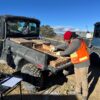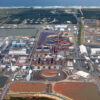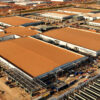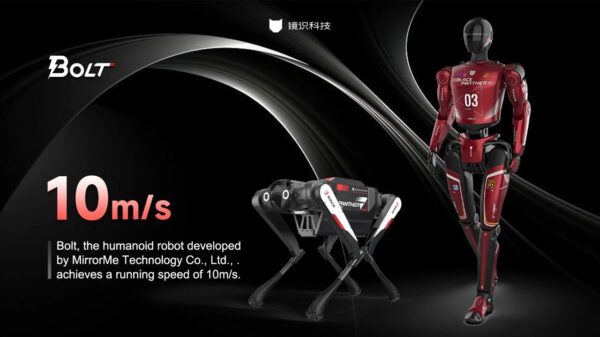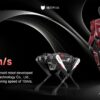A new artificial intelligence system developed in Edinburgh could transform how skin cancer and other skin conditions are diagnosed in remote and underserved communities.
The low-cost, offline-capable tool analyzes images of skin lesions and flags potential concerns for further medical review, without requiring internet access or direct contact with a dermatologist.
Developed at Heriot-Watt University’s School of Mathematical and Computer Sciences, the diagnostic system uses state-of-the-art image classification techniques to detect skin conditions in real time. It operates on portable Raspberry Pi computers, which are energy-efficient, inexpensive, and capable of performing complex computations independently of cloud infrastructure.
Patients using the system take a photograph of a skin complaint with a small camera attached to the Raspberry Pi device. The image is then analyzed locally against a vast dataset of thousands of skin lesion images. Based on this comparison, the system can determine whether the lesion resembles known cases of skin cancer or other dermatological conditions. A diagnosis is then relayed to a local healthcare provider, who can initiate a treatment plan if necessary.
What distinguishes this tool from other AI-driven medical technologies is its ability to function without internet connectivity. Accordingly, the device is suited to rural areas in Scotland, parts of West Africa, and any other region where broadband access or specialist care is limited. Additionally, it holds promise for patients who are infirm or unable to travel for medical appointments.
The system currently achieves up to 85 per cent accuracy in its diagnostic output. Further improvements are expected as researchers gain access to more diverse datasets and apply advanced machine learning models. The goal is to enhance reliability across skin tones, lesion types, and photographic conditions.
Read more: Breath Diagnostics opens Respiratory Innovation Summit with captivating presentation
Read more: Breath Diagnostics now offering a compelling investment opportunity
Believed to be the first of its kind
Researchers recently demonstrated the prototype at Heriot-Watt’s advanced health and care technologies suite. They simulated how the device could operate in a home setting or field clinic, showing how it processes images locally without sending data to external servers. The team designed the system to be simple enough for non-specialists to use while still delivering reliable medical insights.
A collaborative team from Heriot-Watt University, London South Bank University, Edinburgh Napier University, and the Foundation for Research and Technology—Hellas in Greece is developing the tool. The project marks the first effort to combine AI-powered diagnostics with offline functionality specifically for remote communities.
The team prioritized resilience in low-resource settings throughout the design process. Dr. Christos Chrysoulas, Associate Professor of Computer Science at Heriot-Watt, emphasized that healthcare devices must continue functioning even if cloud services fail or internet connections drop.
“E-health devices must be engineered to operate independently of external connectivity to ensure continuity of patient service and safety,” said Chrysoulas.
“In the event of a network or cloud service failure, such devices must fail safely and maintain all essential clinical operations without functional degradation.”
Read more: Breath Diagnostics leader speaks at lung cancer education event in Louisville
Read more: Breath Diagnostics gives the public the chance to join the fight against cancer
Initial rollout for remote Scottish communities
The AI system is currently undergoing refinement ahead of real-world trials. Discussions are underway with NHS Scotland to initiate the ethical approval process required for clinical testing. If successful, pilot programs could begin within the next one to two years. The hospital anticipates the initial rollout to focus on remote Scottish communities, followed by expansion into international settings where dermatological services are sparse.
The development is part of a broader initiative at Heriot-Watt University’s Global Research Institute (GRI) in Health and Care Technologies. One of its key research themes, “One Health,” emphasizes the intersection of human, animal, and environmental health in tackling issues such as infectious disease, antimicrobial resistance, and health access inequalities.
The skin diagnostics tool aligns with these objectives by offering a scalable, affordable alternative to traditional dermatology pathways. It could help triage non-urgent cases, identify serious conditions earlier, and reduce strain on overstretched general practitioners. Furthermore, it enables proactive care from home. This is an increasingly important consideration as healthcare systems across the UK face growing backlogs and resource constraints.
AI already plays a major role in radiology. It rapidly scans X-rays, MRIs, and CT images to detect signs of disease. These systems flag abnormalities—such as tumors, fractures, or fluid buildup—faster than clinicians can through manual reviews. Developers design most of these tools for complex imaging formats used in hospitals and clinics.
This project directly addresses that gap. It relies on standard photographs, not expensive or specialized imaging equipment. A simple camera attached to a Raspberry Pi captures the image. The AI then analyzes it locally, identifying potential concerns such as cancerous lesions without needing internet access or external computing power.
Read more: Breath Diagnostics pioneers novel lung cancer breath test
Read more: Breath Diagnostics takes aim at lung cancer with One Breath
AI plays an increasing role in broader cancer detection
But it’s also not just skin cancer.
Companies are now increasingly looking to AI across the broader landscape of disease detection. It will help to identify various cancers and conditions earlier and more efficiently. By analyzing large datasets at speeds far beyond human capability, AI is reducing diagnostic wait times and improving accuracy in critical care settings.
Blood based multi cancer early detection (MCED) represents one significant area of progress.
Companies like Grail Inc (NASDAQ: GRAL) are leading efforts with tools such as Galleri. Galleri is a test that can screen for more than 50 types of cancer through a simple blood draw. The system uses machine learning to identify abnormal DNA fragments shed by tumors. It shows both the presence and likely origin of cancer before symptoms appear.
Similarly, Breath Diagnostics is pioneering technology that detects cancer through volatile organic compounds (VOCs) found in exhaled breath. Its microreactor, coupled with AI-powered analysis, identifies unique chemical signatures linked to specific cancers, including lung cancer. The system automates the identification of biomarkers that would previously have taken weeks or months of manual analysis.
.
joseph@mugglehead.com


